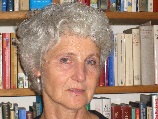
Roswitha Gropp
Hospital of Ludwig-Maximilians-University, Germany
Title: Loss of immunological tolerance as a driving force of infl ammation in the NSG-UC mouse model of ulcerative colitis
Biography
Biography: Roswitha Gropp
Abstract
To date, no comprehensive analysis of autoantibodies in sera of patients with ulcerative colitis has been conducted. To analyse the spectrum of autoantibodies serum-IgG from UC patients and non-UC donors were screened by using a human protein microarray. Screening yielded a remarkable number of 697 diff erentially reactive antigens, most of which are expressed on immune cells suggesting a general lack of tolerance in a subgroup of UC patients. From this analysis, CD99 emerged as a biomarker to discriminate between non-UC and UC patients. In vitro, incubation with CD99 induced the frequencies of CCR4 expressing CD4+ cells (eff ector memory regulatory T cells) and TSLPR expressing CD11b+ macrophages and CD14+ monocytes in peripheral blood mononuclear cells (PBMC), indicating an anti-infl ammatory response. In vivo, challenge with CD99 aggravated disease symptoms and pathological phenotype in NOD-scid IL2Rï§null (NSG) mice reconstituted with PBMC from UC donors and challenged with ethanol (NSG-UC) indicating failure to induce tolerance in this mouse model. Treatment with sirolimus, which is known to promote Treg suppressed infl ammation as indicated by decreased clinical and histological scores and IFN mRNA levels and increased frequencies of eff ector memory regulatory T-cells. In contrast, treatment with an anti-CCR4 antibody resulted in depletion of CCR4 expressing CD4+ T-cells and aggravated infl ammation. Th us, autoimmunity seems to be a driving force in the NSG-UC mouse model. Future studies have to show whether this also applies to the human disease and whether shift ing the immunological equilibrium towards tolerance might be a promising therapeutic alternative.

